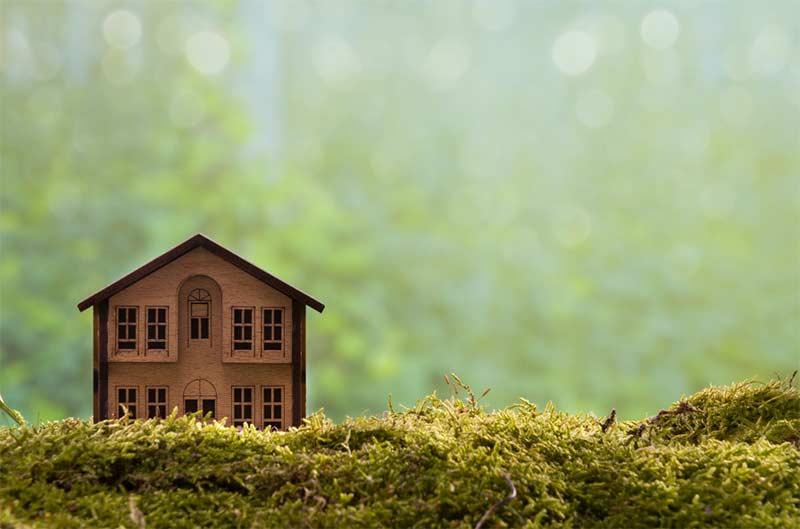5 Simple Ways To Make Eco-Living The Norm

Global temperatures and sea levels continue to rise, and climate change has become one of the most pressing global issues today. These effects are now felt on a more personal level, so people are also becoming more conscious of their impact on the environment while also holding corporations accountable.
Surveys shows that 89% of consumers expect companies to be environmentally conscious while 69% said they are doing everything possible to keep their carbon footprint at a minimum. Mostly, this can be done by replacing everyday products with more eco-friendly alternatives.
However, findings from the latest Healthy and Sustainable Living Global Consumer Insights also reveal that while 47% of its respondents aspire to be more environmentally friendly, only 23% were able to actually make changes in how they live. This highlights the fact that many people are still unsure as to how to switch to a completely eco-friendly lifestyle. Here, then, are some simple steps to follow to make eco-living easier and a more normal affair.
Eco-Friendly Home Improvements
One of the simplest yet most effective steps that you can take to lessen your carbon footprint is to implement clean home improvements. Today, residential factors such as emissions from cooking and heating account for 16% of greenhouse gas emissions in the UK.
The first phase of the pandemic has forced most of us to stay at home, and this could be the reason for the 1% increase in residential emissions between 2019 and 2020. To make sure that you lessen emissions at home, you can start by using renewable energy sources such as solar panels. These energy sources are not only low-maintenance, but they are also sustainable as they don’t release any toxic fumes.

Sustainable Cleaning
Newer types of cleaning products also make eco-friendly cleaning possible. Chemical cleaning products are major sources of pollutants, and chemical production may contribute to an additional 541 million tonnes of greenhouse gasses by 2030.
As well, chemical cleaners release volatile organic products or VOCs that have dangerous effects on your health. This is why large-scale businesses are increasingly turning to plant-based cleaners, which are just as effective as chemical cleaners.
Clean cleaning can be adapted at home, too. A 2019 report showed that 45% of homes in the UK had levels of VOCs that exceeded healthy levels, with 17% reaching serious levels of VOCs. Using more eco-friendly cleaning products, such as simple acids made out of baking soda and vinegar, can help lower the levels of VOCs in your home.
Support Eco-Friendly Businesses
Another important step that you should take as you transition to a more sustainable and eco-friendly lifestyle is to support eco-friendly businesses. This should be easier for consumers because in line with the government’s pledge to bring all greenhouse gas emissions to net zero by 2050, 75% of businesses have adapted sustainable practices and are commercially benefiting after doing so.
As a consumer, your role in this is to make sure that you only buy from businesses that are transparent when it comes to the ingredients and production process of their products. Other consumer attitudes that are slowly gaining traction when it comes to supporting eco-friendly businesses include buying products that are in season or those that are locally grown.
These are simple steps but they make a significant impact when it comes to supporting businesses that are in line with your values as a consumer.

Upcycle, Recycle
In the UK, households throw away over 26.8 million tonnes of waste. As such, to contribute in minimising the amount of waste thrown daily, you can start by buying less. Consider finding items at home that can be repurposed, and instead of throwing away old or damaged items, it would also be good to have them fixed first.
For products that you have to throw away, especially plastic ones, make sure to inspect their recycling symbols. This will help you know which plastic products can be recycled in your area.
Meanwhile, to help in making sure that the UK’s recycling system is more efficient, there are simple steps that you can take, such as screwing lids back on and squashing bottles. You can also take recyclable plastic film and leftover carrier bags to recycling points in big supermarkets, which can increase the amount of supermarket packaging you recycle by up to 10%.
Eat Less Red Meat
Finally, a change in your diet can also make a significant impact on your carbon footprint. Red meat may taste good, but it also is a major source of greenhouse gas emissions. Per 3.5oz of protein from red meat, an average of 50kg of greenhouse gasses is released.
Also, while animal livestock uses 77% of agricultural land in the world, only 17% of global caloric consumption comes from animals, thus showing how unsustainable the meat industry can be. As such, reducing your red meat intake is a good way to a more environmentally friendly lifestyle.
Instead of eating red meat, you can seek alternatives, such as fish, poultry, soya beans, and nuts. These are good food substitutes as they provide you with the necessary amount of protein that you need, but the production of these products is usually more sustainable.
Living an eco-friendly lifestyle should not just be a passing fad; with increasing concerns regarding climate change and its very real effects, it is high time for us to be more proactive when it comes to making eco-friendly choices. These steps are just some of the few steps that you can take to begin as you start reducing your carbon footprint.